Back to series
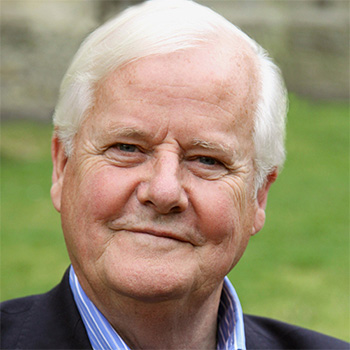

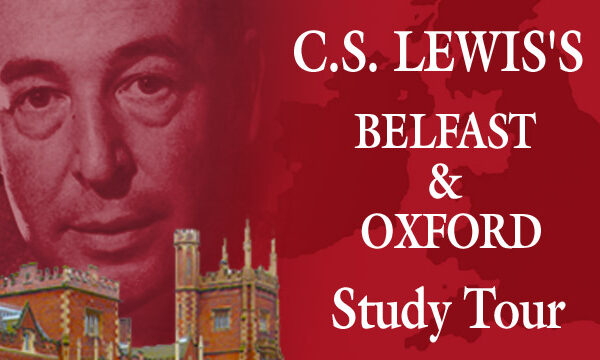
Christian Courage and the Struggle for Civilization
VOLUME 2 NUMBER 4 ISSUE OF BROADCAST TALKS (PDF)
BROADCAST TALKS presents ideas to cultivate Christ-like thinking and living. Each issue features a transcription of a talk presented at an event of The C. S. Lewis Institute. The following is adapted from a talk entitled Where is America Headed? delivered on November 11, 2016, at McLean Presbyterian Church, McLean, Va., sponsored by the C.S. Lewis Institute.
The great Saint Augustine had the privilege and responsibility of living as Rome fell after eight hundred years, and he articulated the vision of faithfulness that led the church through the turbulence of the Dark Ages. I believe we’re living in a similar time after not eight but five hundred years of Western dominance. So we’re seeing the decline of the West; we’re seeing the gravest crisis to the American republic since the Civil War; we’re seeing a faltering search for a new world order; we’re seeing a global crunch of a constellation of problems; and we’re also seeing, as we look toward the future, unprecedented challenges to humanity itself. But I want to look at what’s really at the heart of the crisis for us as followers of Jesus, because, as you look at the global world, the Christian faith is the first truly global religion, by far the most numerous. The church is exploding in the global South but not doing well anywhere in the advanced modern world of the West. The heart of the scandal for the American church is that, while in Europe Christians are mostly a minority in one country after another, in this country Christians are a huge majority; yet despite the numbers, they have less cultural influence than tiny groups that comprise less than 2 percent of America. There is something wrong with the salt and the light.
As we have time, let me address a whole series of things for you to think through later, some of them here rather quickly, some of them in greater depth.
Hostile Ideas That Openly Oppose Us
Let me come closer to things of faith. We need to be clear about the hostile sets of ideas that are openly opposed to Christianity. I will just mention three.
The first one, which you probably all know well and I’m sure the C.S. Lewis Institute has taught well, is postmodernism. Put simply, postmodernism says that God is dead, truth is no longer objective or absolute but only relative, and what really matters is the will to power. You all know that one. But let me go on to mention two that are far less discussed in Christian circles, but to me are far more deadly. Both of them are an outgrowth or at least an ally of postmodernism.
The second one is called social constructionism. There is a certain sense in which we need to understand people through life’s “worlds,” the social setting in which they live, to see how it shapes their thinking. That’s a very important idea. But that idea doesn’t say what the radical social constructionists say. They have three little slogans: There are no givens; there are no rules; there are no limits. Everything with no exceptions is socially constructed. The most obvious expression of that currently is the sexual revolution and the present stage of transgenderism. Identity is subjective, self-chosen, and shifting; so be who you want to be. Of course you don’t have to think far, but that is against not only ancient ideas like Stoicism, but also the Jewish and Christian biblical faiths which have a very clear understanding that there is a created order: Heaven and Earth, Sun and Moon, Sabbath and weekday, and of course male and female. But for the radical social constructionist: no, everything is socially constructed; those things are the oppressive obstacles that need to be overthrown. Make no mistake: this is a very, very radical philosophy.

The third hostile philosophy is broadly understood but not in deeper ways. That is the sexual revolution. Many people think of the sexual revolution as Playboy, the pill, the permissive 1960s. But that is what is called the second wave of the sexual revolution. Many people have a hazy idea that the sexual revolution is somehow neo-Marxist, and it is! But it’s very different from neo-Marxism. Neo-Marxism has its prophets, Rousseau, Hegel, and of course Karl Marx, and believes in political revolution. The sexual revolution has three different prophets:
• the Marquis de Sade - the great apostle of eroticism and violent cruelty.
• André Breton, who’s the anti-father, as he called himself, or the father of surrealism. At the heart of the surrealist revolution, if you’ve read their manifesto, is an open and explicit hatred of the Christian faith. As they put it, the decisive battle for the sexual revolution will be the battle against the Christian faith and where the Christian faith and church will be overcome.
• The third great figure is Wilhelm Reich. To those of you who remember the sixties, this name was bandied around in the counterculture, sprawled on the walls of French and German buildings, and the riots and so on. He was the man who coined the term the sexual revolution. He’s Jewish like Freud. He begins with Freud, who says that while you have all the unconscious bubbling up, civilization depends on restraining the instincts. But Reich says, “Wrong.” Freud was just caving in to the alarmism of his time. The real thing is to see the freeing of all the instincts. And so his ideas are an open revolt on every form of repression, particularly the church, giving sexual freedom to the youngest children, including sex education, and really elevating the life forces of sexual energy as the ultimate source of freedom rather than, say, political freedom. You can see that radical view; his books published in the 1930s, incredibly influential in the 1960s, were behind many American novelists, such as William Burroughs and Norman Mailer, and you still see his views today. You can see how the sexual revolution has a totalitarian whiff when it comes, for example, to antidiscrimination.
Obviously it was a master stroke to borrow the notion of discrimination from the civil rights movement. But if you think about it, that’s an extremely dangerous move. You can take a Jewish thinker like Leo Strauss, who was not, as I understand, a particularly devout religious Jew. But Strauss said more than fifty years ago that if you take antidiscrimination and press it consistently so that even the private sphere has to be consistent, you will destroy liberal society. The Jews understand that warning very well, far more than Christians do. But at the heart of Judaism, and the heart of the Christian faith too, is the book of Genesis. The story of creation is a story of distinctions, a story of discrimination between heaven and earth, which the Tower of Babel tries to undo, between male and female, etc. In fact, the Jews called the Lord, “the Great Discriminator,” because His creation discriminates between things, and if you remove the discriminations, you create idols; they’re much closer in their understanding of the deadliness of some of the ideas at the heart of the sexual revolution. So certainly in a group like the C.S. Lewis Institute, with the recovery of apologetics today, we need people who really understand some of these ideas at their core and the deadliness they represent and are able to answer them at that core level.
The Challenge of Modernity
Let me go on to another point where Christians are even less conversant. We need to face up to the lethal distortions of faith in the advanced, modern world. The simple fact is, while there are many Christians who are very good at understanding hostile ideas – I often joke that the average American evangelical Christian could smell a relativist from a hundred yards – it isn’t ideas that have caused the main damage to the church. In fact you can say, as many do, that modernity itself – not ideas but modernity – has done more damage to the church than all the persecutors put together. And yet many Christians don’t even know what I’m talking about.
Let me give you three examples. None of these has to do with ideas. None of these is inevitable. In other words, if you recognize them, you can resist them. But if you don’t recognize them, they can shape you unawares. I mention three things at the heart of our modern Western world that we need to resist in the name of faithfulness to our Lord.
First, the modern world tends – underscore the word tends – to shift us from a stance of authority to a stance of preference. One significant reason is our consumer society. What could be more wonderful and innocent? But if we look at our supermarkets or shopping malls, we see an endless cornucopia of choice and change. Magnificent! But eventually one doesn’t put the stress on what one chooses or why one chooses, just on the fact one has choice, consumer choice. It becomes a matter of preference, what you choose, and then it comes into areas like faith. Just as we channel surf and hop and shop, so people do it with churches. The sermons are too long, too short, the music’s too traditional, too contemporary, but there’s always somewhere else, and so people are just turning around and everything finally becomes a matter of preference.
I confess, the first time Jenny and I moved to the States, I was really shocked when I went to California, and they were all referring to the Sunday “worship experience.” Now of course everything in a consumer society is there for our experience because you’re worth it! But it’s a worship service, it’s not a worship experience for us. We’re serving Him! You can see how this idea has crept into everything, including theology. So in a world that the social scientists call “a cafeteria of faith,” I see parallels: Pass down a salad bar; you don’t like radishes? Fine, take carrots. You don’t like kale? All right, go for the romaine, whatever you like. One man said to me, “Every Christian puts a big dollop of love on their plate, and then says, ‘Hell? Hell no!’” Pick and choose, just pick and choose. It’s just a matter of preference. And you can see people who don’t like those passages in Leviticus about, say, the gay lifestyle or whatever, throw the passages out. Or Paul, no it’s just a matter of his time or culture. And you can see that cafeteria, consumerist, pick-and-choose mentality has come into faith everywhere.
Young evangelicals, showing in polls, consider Jesus “a” way, “a” truth, “a” life. “The” way? “Lord”? Remember, the early church would rather have died than burned a whiff of incense to Caesar as Lord. But young evangelicals? It’s just a matter of preference. You can see the softness and the syncretism creeping into the church. And right-mindfulness? We’re all in favor of right-mindfulness! Shade a bit here, and there; who cares if there’s a slightly Buddhist background or yoga, etc.? It’s all there. And you can see the American church is weak because it’s worldly. There’s a soft accommodationism; there’s a tendency toward syncretism that is part of its crisis of authority.
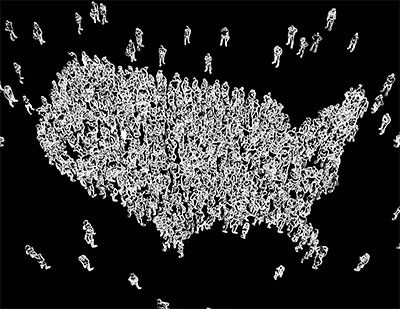 Take another example. The modern world tends to shift us from integration to fragmentation. What’s behind this? It’s called differentiation. Don’t worry about the term; it just means the way the modern world throws up all sorts of spheres of life that are all different ways of doing things. Take, say, my beloved who comes from California – L.A. For a while we were at a wonderful church where President Reagan used to go. I remember teaching the adult class and doing a little study of them. Some of them drove seventy-five miles to church, a hundred miles the next day to work, thought nothing of going fifty to the beach or to Hollywood or a sports game. In other words, L.A. is a vast, sprawling metropolis held together by cars and freeways. But it was in L.A. that a scholar made that damning remark that the Californian churches were privately engaging but publicly irrelevant. Faith flourished here – you hope in the home, or you hope in the church – but it didn’t go everywhere.
Take another example. The modern world tends to shift us from integration to fragmentation. What’s behind this? It’s called differentiation. Don’t worry about the term; it just means the way the modern world throws up all sorts of spheres of life that are all different ways of doing things. Take, say, my beloved who comes from California – L.A. For a while we were at a wonderful church where President Reagan used to go. I remember teaching the adult class and doing a little study of them. Some of them drove seventy-five miles to church, a hundred miles the next day to work, thought nothing of going fifty to the beach or to Hollywood or a sports game. In other words, L.A. is a vast, sprawling metropolis held together by cars and freeways. But it was in L.A. that a scholar made that damning remark that the Californian churches were privately engaging but publicly irrelevant. Faith flourished here – you hope in the home, or you hope in the church – but it didn’t go everywhere.
The Jewish and Christian and Muslim faiths all require integration. Jews are supposed to integrate their lives under the Torah; Muslims under the Qur’an, the Sharia; and for us under the lordship of Jesus. But many Christians in the advanced modern world live in a fragmented way. Wonderful Bible studies and fellowship groups, but does it permeate the whole of their lives in all the structures of their world? No. So the salt isn’t salty.
Take a third example. The modern world, if we’re not careful, tends to shift us from a supernatural worldview to a secular worldview. Think for a minute. In the milieu of our great-grandparents, the unseen was not unreal. You could be Christian, or you could be pagan and believe in spirits in waterfalls, but the unseen was very real. It was more real than the seen world. People understood things such as business or farming or sex in the light of the unseen world. But in our modern world, no; in the modern world, what’s unseen is unreal. What’s the real world? It’s the world of business, science, technology, law, etc., – not the supernatural. In this case, modernity’s only the icing on the cake of the problem, as it were; it goes back far earlier. You can trace the way, say, our Lord lives in the power of the Spirit, preaches in the power of the Spirit, heals in the power of the Spirit, delivers in the power of the Spirit, discerns in the power of the Spirit, and He gives this gift of His Spirit to the twelve, to the seventy, to the whole of the church on the day of Pentecost. You can see it going right down to the fifth century. The great Saint Augustine’s a fascinating example. He’s a little skeptical, coming out of paganism. But then his fellow bishops show him the power of the Spirit. And he records in Hippo more than fifty miracles. Supernatural miracles of healing. But then what happens? Well, it becomes tied to certain people only. The Saints with a capital S and certain places like Lourdes – you had to go to that place to have the healing. What happens then? You surround it with superstition, money making, massive corruption. So the Reformation comes on. Cleaning the house, what do they do? They tend to throw out the baby, bath water, and the whole lot.
Now, let me be blunt in this Presbyterian church. John Calvin is the theologian of the Holy Spirit, and rightly so. But many of his followers are the frozen chosen. And you can see the Western church – of course, then came the Enlightenment – think of Thomas Jefferson taking out of the New Testament anything he didn’t like that was supernatural – and then modernity. Unlike new atheists who say, “There is no God,” hostile like Richard Dawkins, modernity just smiles and says, “We have no need of God.” Put a man on the moon, market a politician, a car, a perfume; we can grow a church from soup to nuts. You’ve just got to know how big your parking lot’s got to be, etc. It’s all there on the Internet if you want it. All you need to check is the last thing: measurable outcomes. And so it goes.
In other words, in the modern world we are, as Max Weber says, tone deaf. Many modern American Christians are atheists unawares. Practically. Operationally. My mentor Peter Berger says we live in a world without windows; it’s all this side of the ceiling. But if ever we were in a world where we need the power of the Holy Spirit, it is today, which leads me on to my last point.
Needed Tools
We need to make sure that we and all our fellow members have the needed tools to grapple with this incredible modern world. I’ll mention two, quickly. First, supernatural warfare. Supernatural warfare. If you read Immanuel Kant, the great philosopher of the Enlightenment, his last essay is called “Perpetual Peace.” He proposed that reason would rise, we’d negotiate all the world conflicts, and we’d achieve a world of perpetual peace. It gave rise to the League of Nations, to the modern Peace Study movement. A hundred years after Kant, you had Friedrich Nietzsche. In his last book, not an essay, a little book called Ecce Homo – I haven’t got it in front of me, but – he says, “We’re about to see a war of spirits, the likes of which the world has never seen.” If you look around our twenty-first-century world, who’s closer? Kant, perpetual peace, or Nietzsche, a war of spirits?
Looking at some of the things – the Middle East and other areas – you can understand them, and how to approach them, only by having a biblical understanding of what Daniel calls the angel princes of the empires, like Persia and so on. Once again, we need to be a church that is powerful in the area of spiritual warfare.
The second tool is the need for the capacity to persuade, which is another word for apologetics, advocacy, and so on. If ever we needed that capacity, it’s today.
I’ll draw this to a conclusion. Two stories as I finish.
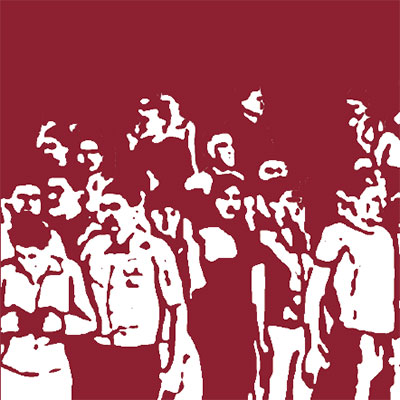 The challenge is – do we in the Western world have a faith that has faithfulness, integrity, and effectiveness true to our Lord’s calling that can overcome the challenges of the advanced modern world?
The challenge is – do we in the Western world have a faith that has faithfulness, integrity, and effectiveness true to our Lord’s calling that can overcome the challenges of the advanced modern world?
Not long before he died, I had the privilege of visiting Jenny’s and my wonderful, old friend John Stott. We knew him well and we loved him. He was in his nineties. He was horizontal and in his bed. We had an hour and a half together. I prayed for him, and I said, “How would you like Jenny and me to pray for you?” (It turned out this was just three weeks before he died.) And John, who could speak only with a very hoarse whisper … I’ll never forget what he said. “Pray that I will be faithful to Jesus to my last breath.” That is the issue of the day. Faithfulness.
The other story: There was an incredible debate after World War II by many of European’s greatest Christian intellectuals. T.S. Eliot, Jacques Maritain, Christopher Dawson, John Baillie, Emil Brunner, many, many others, and in the course of that debate, looking at the challenge of the church in the modern world, Christopher Dawson raised the question to the others – this is 1947 or so: can the church be warmed again a third time? Conversion of Rome, collapse. Winning back the world through the conversion of barbarian kingdoms, and now, really bad shape. Can the church be warmed again a third time? Emil Brunner, an eminent theologian, had the guts to say, “I’m not sure.” He was so aware of the challenges of modernity and how bad we were doing that he said, “I’m frankly not sure.” Eventually Christopher Dawson answered his own question. Can the church be warmed again? He said, “Of course every Christian should say yes. But we must not answer too quickly or too lightly because on the outcome of that question depends the future of humanity.”
That, I believe, is the significance of the time in which we’re living, so I wanted to start with the challenges to the church. On this depends the future of humanity. We followers of Jesus are the last great champions and defenders of human dignity. We are the last great champions and defenders of freedom. And if you go on down the line, America has become, the West has become, a cut-flower civilization. The roots are cut in our elite circles; the flowers will die. This is an incredible hour for the people of faith to move out with unshakable confidence in the gospel and be absolutely faithful to our Lord.
[Videos of this talk (unedited), a second talk entitled ‘Renewing the American Covenant’, and Q&A from both sessions can be found Here. Much of the basic content presented in this talk, as well as considerable additional material, is included in Os Guinness’s book Impossible People: Christian Courage and the Struggle for the Soul of Civilization (Downers Grove, IL: IVP Books, 2016).]


Os Guinness
Author Os Guinness, is the author and editor of more than thirty books, including Fool's Talk, Renaissance, The Global Public Square, A Free People's Suicide, Unspeakable, The Call, Time for Truth, The Case for Civility and his most recent book, Zero Hour America. A frequent speaker and prominent social critic, he has addressed audiences worldwide from the British House of Commons to the U.S. Congress to the St. Petersburg Parliament. Guinness has had a lifelong passion to make sense of our extraordinary modern world and to stand between the worlds of scholarship and ordinary life, helping each to understand the other - particularly when advanced modern life touches on the profound issues of faith. (Photo By Deryck Chan 2013)
 COPYRIGHT: This publication is published by C.S. Lewis Institute; 8001 Braddock Road, Suite 301; Springfield, VA 22151. Portions of the publication may be reproduced for noncommercial, local church or ministry use without prior permission. Electronic copies of the PDF files may be duplicated and transmitted via e-mail for personal and church use. Articles may not be modified without prior written permission of the Institute. For questions, contact the Institute: 703.914.5602 or email us.
COPYRIGHT: This publication is published by C.S. Lewis Institute; 8001 Braddock Road, Suite 301; Springfield, VA 22151. Portions of the publication may be reproduced for noncommercial, local church or ministry use without prior permission. Electronic copies of the PDF files may be duplicated and transmitted via e-mail for personal and church use. Articles may not be modified without prior written permission of the Institute. For questions, contact the Institute: 703.914.5602 or email us.
-
Recent Podcasts
A Welcome Change in Apologetics
by Randy Newman, Aimee Riegert on April 19, 2024We’re burdened for our friends who don’t know...Read More
-
Questions That Matter Podcast – Samuel James and Digital Liturgies
by Samuel James, Randy Newman on April 19, 2024
-
The Side B Stories – Dr. James Tour’s story
by Jana Harmon, James Tour on April 12, 2024
-
Recent Publications
Isn’t Morality Relative?
by Christopher L. Reese on April 1, 2024It is widely accepted in the Western world...Read More
-
Do Muslims and Christians Worship the Same God?
by Andy Bannister on March 1, 2024
-
Artificial Intelligence and Its Impacts on Humanity
by John Lennox on February 13, 2024
0
All Booked
0.00
All Booked
0.00
All Booked
20599
GLOBAL EVENT: 2024 Study Tour of C.S. Lewis’s Belfast & Oxford
https://www.cslewisinstitute.org/?event=global-event-2023-study-tour-of-c-s-lewis-belfast-oxford-2&event_date=2024-06-22®=1
https://www.paypal.com/cgi-bin/webscr
2024-06-22

Next coming event
Days
Hours
Minutes
Seconds
GLOBAL EVENT: 2024 Study Tour of C.S. Lewis’s Belfast & Oxford
On June 22, 2024 at 12:00 pmat Belfast, Northern Ireland & Oxford, EnglandCategories
Tags
Speakers
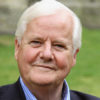
Os Guinness
Author
Team Members

Os Guinness
AuthorOs Guinness, is the author and editor of more than thirty books, including Fool's Talk, Renaissance, The Global Public Square, A Free People's Suicide, Unspeakable, The Call, Time for Truth, The Case for Civility and his most recent book, Zero Hour America. A frequent speaker and prominent social critic, he has addressed audiences worldwide from the British House of Commons to the U.S. Congress to the St. Petersburg Parliament. Guinness has had a lifelong passion to make sense of our extraordinary modern world and to stand between the worlds of scholarship and ordinary life, helping each to understand the other - particularly when advanced modern life touches on the profound issues of faith. (Photo By Deryck Chan 2013)




